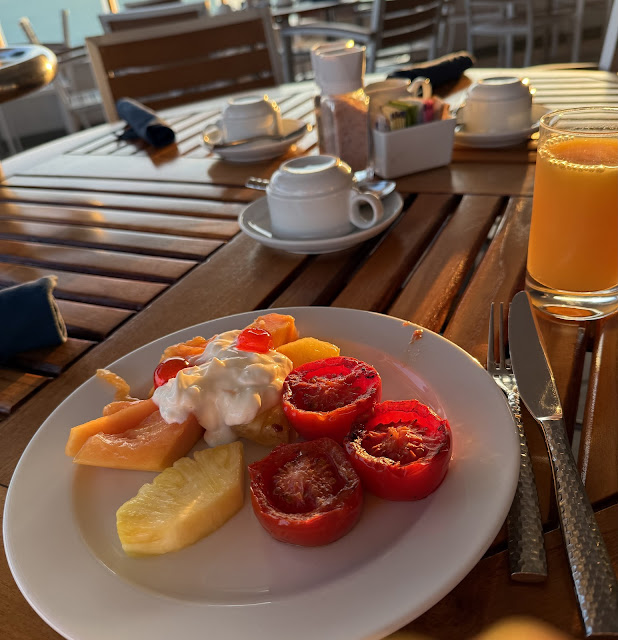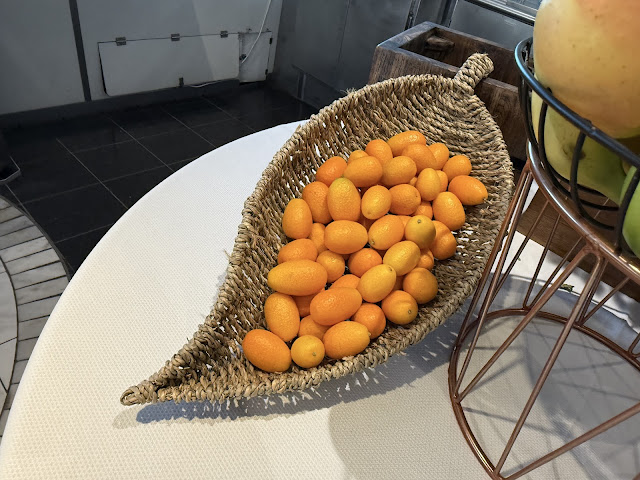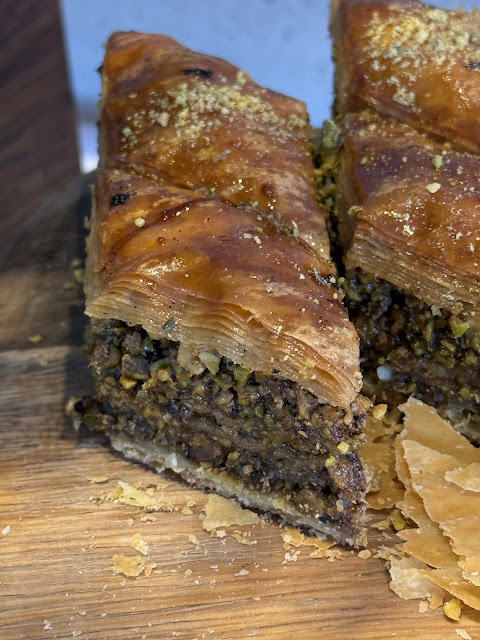The three classic orders of Greek and Roman architecture are the Doric, Ionic, and Corinthian orders, as seen in the above photos that I took during our recent visits to classical sites in Greece and Turkey. The most recognizable feature of each order is the form of the capital (top element) of the column, but there are also other features in the design of Greek and Roman buildings. I’ll concentrate on the columns:
- Doric columns are very plain, with a simple sloping capital, and usually a fluted base.
- Ionic columns have a scroll at the top of the capital, and sometimes a band of decoration between the scroll and the fluted base.
- Corinthian columns are much more elaborate, with a scroll and more decorations at the top, and with a design of leaves (usually the leaves of the acanthus plant) between the scroll and the base. Sometimes the base is fluted, and sometimes it is plain.
The Acropolis
 |
| The Acropolis is visible from many places in Athens. |
 |
| The Parthenon on the Acropolis is the most important example of Doric architecture. |
 |
| Several of the other buildings on the Acropolis were in Ionic style. |
 |
| Another Doric Temple on the Acropolis: looking up as we climbed to the top. |
 |
The Erechtheion |
These columns in the shape of maidens — Caryatids. They are gracefully holding up the building on their heads. This is a unique example of Greek column design. Wow!
The Temple of Poseidon at Cape Sounion
This Doric temple, built in 440 BCE, was dedicated to the god Poseidon. Cape Sounion, at the top of a high hill above the sea, was a holy site from very early in Greek history. Nearby was a temple of Athena (now just a few stones on the ground), and the two gods were both very important to the nearby city of Athens. Sounion is located at the southernmost tip of the Attica peninsula; we saw it both on land, walking around the site, and also from the deck of the ship.
 |
| Our ship passed the point at sundown on the first day of our voyage. |
 |
The Temple of Posidon in the far distance, as seen from the ship.
|
Cape Sounion was a landmark for sailors in Ancient Greece who were trying to find Athens, and I like to think of how they would have been very glad to spot it from a distance as they sailed on this route. In fact, in the Odyssey, the helmsman of King Menelaus died as their ship was passing this point, and he was given last honors there, in a funeral pyre on the beach.
Delos
 |
| Delos: another Doric Temple. |
 |
| An Ionic temple. The site at Delos is vast! |
Corinthian Columns at Ephesus
 |
The library at Ephesus (114-117 CE) is a strong example of Corinthian architecture.
The Corinthian order is more strongly associated with Rome. |
 |
| This broken column has lost the scroll, so you can see the acanthus leaf design very clearly. |
 |
| A line of Corinthian columns at Ephesus, which was a huge city. |
On our trip we visited several ancient Greek cities. In order to focus a bit, and not have to write too many different blog posts. I’ve concentrated on just one aspect — the three orders of architecture.
Afterthought: Cats Everywhere!
 |
In every ancient site, as well as in the towns, we saw dozens of cats.
Some of our fellow passengers were so enthralled that they petted them, which seems risky.
Many of our fellow passengers took numerous photos of them. I was less enthusiastic, but here it is. |
Blog posts © 2025 mae sander





































































